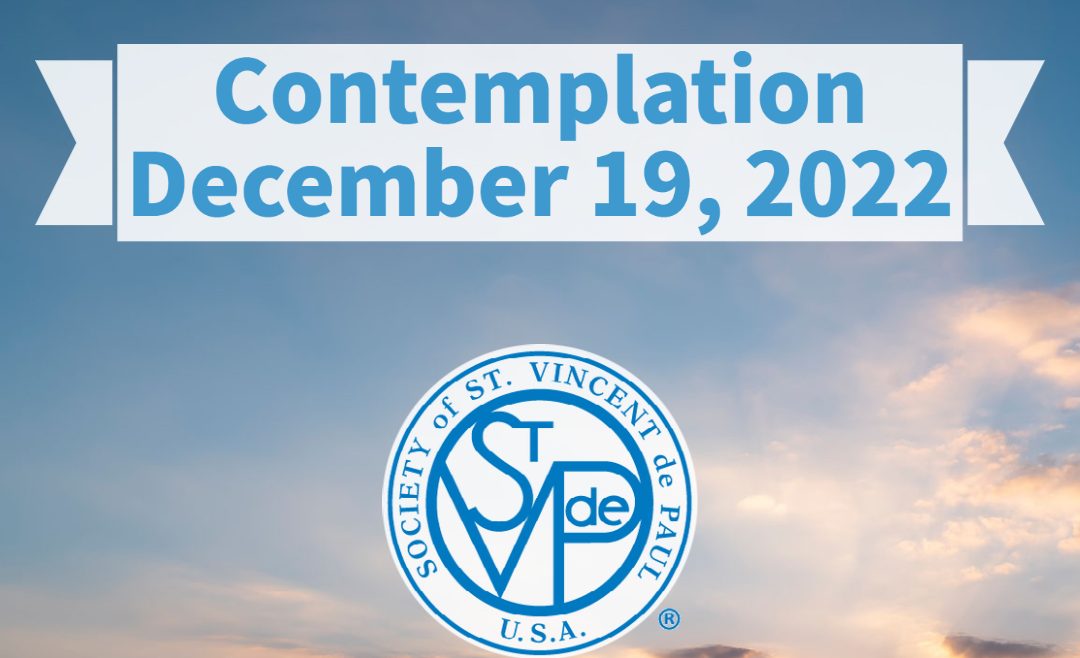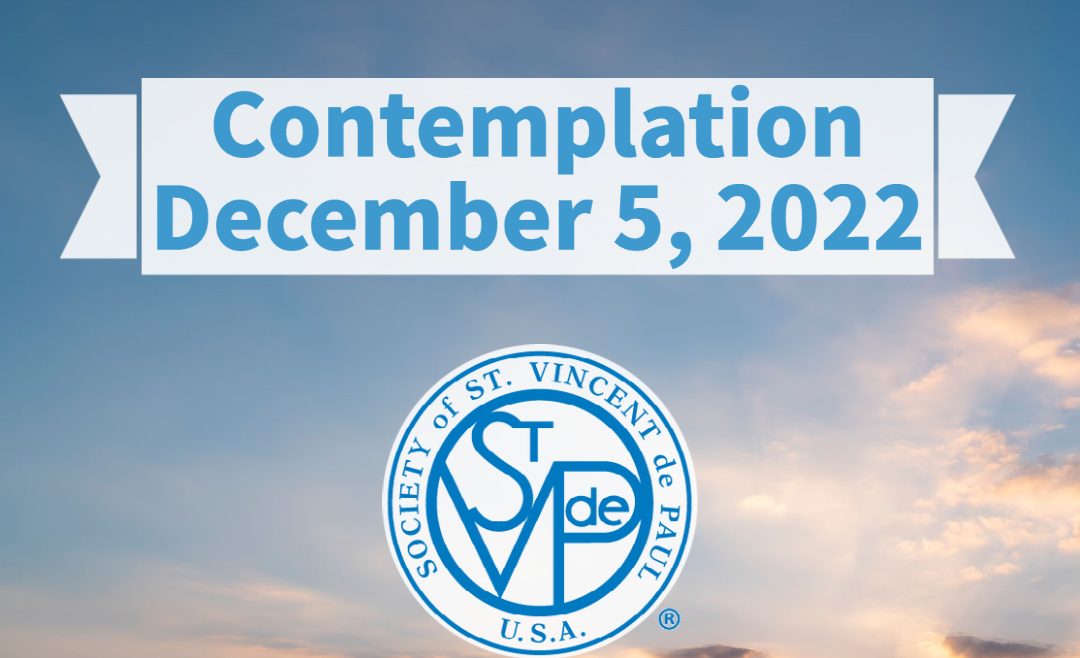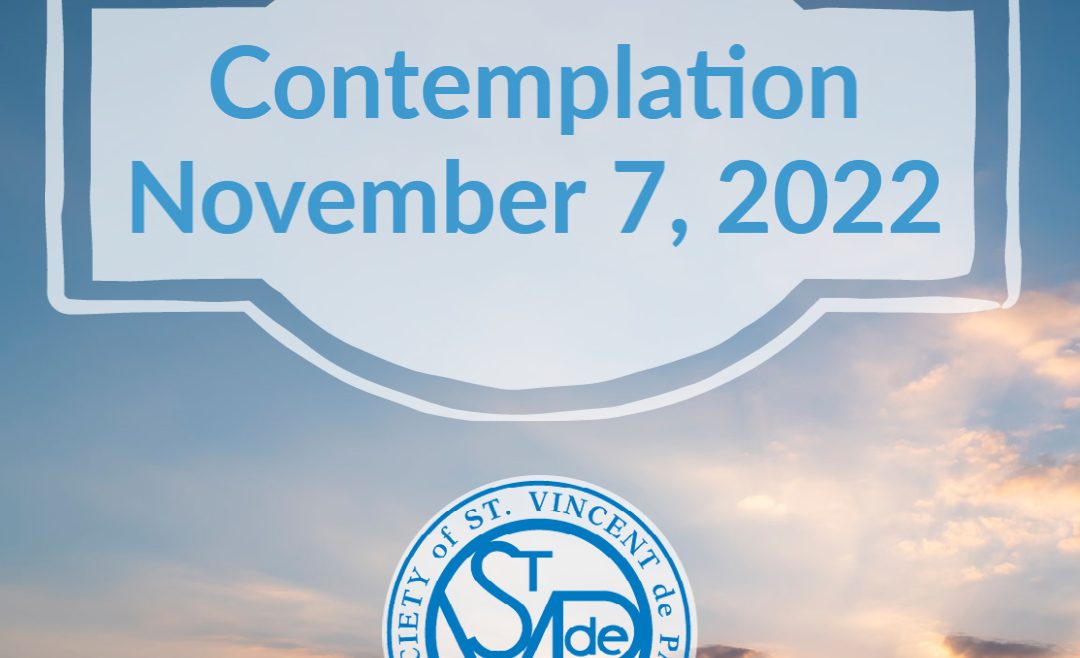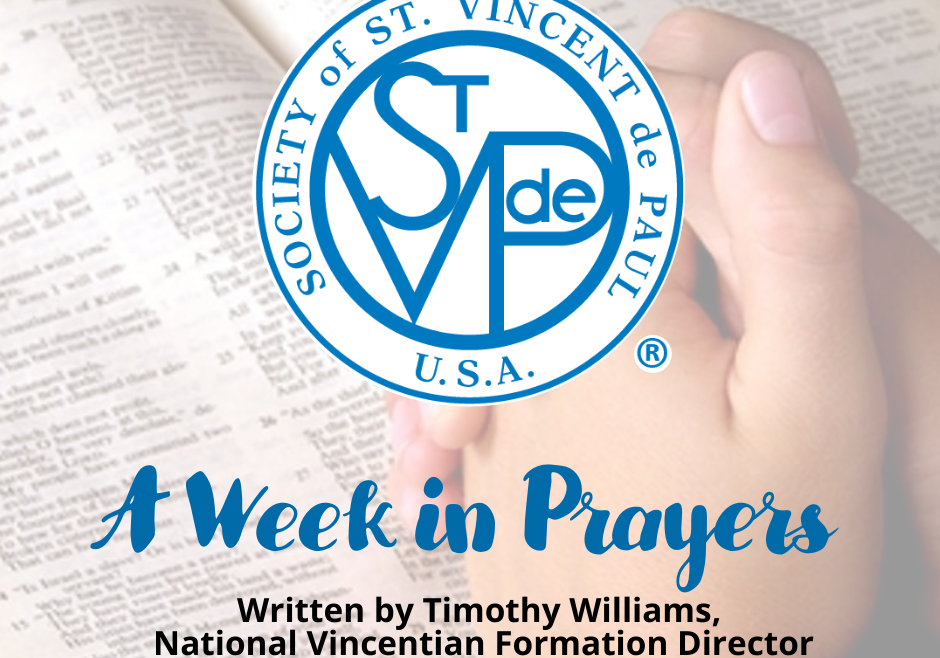As Vincentians, our primary purpose is our own growth in holiness. Achieving this is very closely tied to another core tenet of our spirituality, which is that our “ideal is to help relieve suffering for love alone, without thinking of any reward or advantage for [ourselves].” [Rule, Part I, 2.2] It only stands to reason that our ideal is also the greatest commandment, Christ’s express will that we love the neighbor as ourselves, for the love of God.
Saint Vincent de Paul once explained to the priests of the mission that in order to do this, we must make our intentions clear at the start. He suggested this prayer, which members of the Society might also consider offering before each home visit: “My God, I’m going to do this for love of You; for love of You I’m going to stop doing this thing in order to do something else.” [CCD XI:284]
Making this good intention, he said, is much like saying the words of the sacrament of Baptism – it isn’t the water that baptizes the child. Water is only matter; the prayer is the form. In a similar way, our charitable works, by themselves, are only matter if not expressly offered for the love of God alone.
There are many temptations that can distract us from this. Vincent described five vices that act contrary to our virtues: “(1) mere human prudence; (2) the desire for publicity; (3) always wanting everyone to give in to us and see things our way; (4) the pursuit of self-gratification in everything; (5) attaching no great importance to either God’s honor or the salvation of others.” [CCD XII:254]
So, for example, although we owe an accounting of our works to our donors, we can sometimes get too caught up in the narrative of our great successes, and even begin to see our works as achievements, forgetting “that giving love, talents and time is more important than giving money.” [Rule, Part I, 3.14]
Fr. Corpus Delgado, C.M., in a conference on St. Louise de Marillac, shared this great insight from her example: “To follow Jesus the Crucified Lord is to learn little by little that success is not one of the names of God, and that in our vocation and in our service, we are not asked for percentages of effectiveness but a persevering fidelity.” [CEME, Salamanca, 2010]
The home visit isn’t about the light bill, or the rent, or the groceries. If it were, we could leave those things at the doorstep. It’s about the love of God and the neighbor, which perhaps can’t be measured or reported but is exactly the thing that can lead to our growth in holiness, so that it is no longer we who love, but Christ who loves through us. [Rule, Part I, 2.1]
Contemplate
Do I make my intention clear to God before each work of charity?





